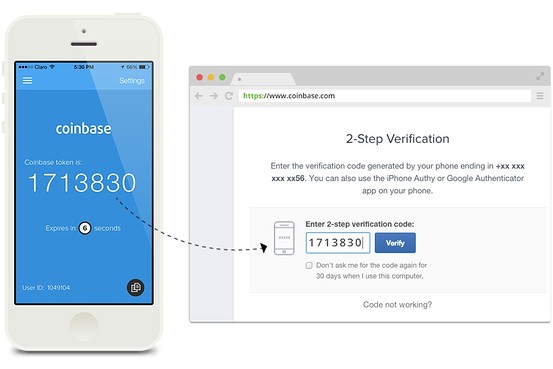A Startup Working To End Nude-Photo Theft And Other Fraudulent Hacks Raises USD3 Million
One of the easiest ways to secure your accounts is by using two-factor authentication so that you have both something you know and something you have.
Hacking, as Jennifer Lawrence among other celebrities found out last week, into poorly secured online accounts isn't all that hard
Authentication and specifically the security that two-factor authentication brings got a real profile boost last week when news of the celebrity picture scandal broke.
forbes.comWhile there are plenty of arguments about how these images where actually stolen, it seems pretty certain that using two-factor authentication (2FA) would have helped avoid the issue.
forbes.comTwo-factor authentication allows you to have both something you know (your password) and something you have (the second, ever-changing security PIN).
So if you're a company working in the 2FA space, (as Forbes contributor Ben Kepes aptly notes), making an announcement about some funding news the week after the hack became public is a smart move. And so it is with Authy this week.
Authy, a Y Combinator-funded startup that specializes in two-factor authentication, on Monday announced a new series A funding worth $3 million. It has a pretty impressive list of high-profile investors, including Box CEO Aaron Levie, Salesforce.com and Winklevoss Capital.
forbes.comThe company, founded back in 2011, is laser focused on making two-factor authentication more easily implemented and, by extension, used more widely. Authy delivers a simple mobile application that consumers use for the 2FA needs. They also have a back ground API that developers use to build 2FA into their websites and applications.
forbes.comIn addition, the company announced that it has hired Marc Boroditsky — the former vice president of Identity and Access at Oracle after he sold his two-factor service Passlogix to it — as its president and CEO.
According to Authy's newly appointed COO and President, Marc Boroditsky, here's how the technology works:
Developers add Authy’s “advanced authentication capability” to their Web or mobile apps by dropping a few lines of code into their system. Users of their Web and mobile apps install Authy on a device of choice, usually a mobile phone, tablet or laptop.
When a user visits a site or uses an app or service that’s Authy-enabled, they are prompted for their user name and password, as usual, but then a box pops up asking for a one-time code that they get through an alert on their device-of-choice and input into the box.
The code expires in about twenty seconds, making it nearly impossible for a hacker to divine what it is. The user can then proceed to access personal data or content, or make important transactions in the app or website, securely.
The idea behind Authy is to give users of consumer technologies a simple way to log in to their favourite apps and sites securely, in a way that feels the same everywhere they go online
Today, various apps ask them to figure out ad hoc security features, and download various “two-factor authentication” apps—like those provided by Facebook or Google separately today. Mr. Boroditsky previously founded Passlogix, a “single sign-on” technology company acquired by Oracle, and served as an early adviser to Authy.
Mr. Boroditsky said that bitcoin and other cryptocurrency businesses, game makers, e-commerce businesses and content companies have been among the earliest to adopt Authy and its “multi-factor authentication” technology.
 businessinsider.in
businessinsider.in
He said the company plans to use its new funding for hiring, both in its San Francisco headquarters office and development office in Bogota, Colombia, and to release new features for developers and their end-users. The company will also use some of the funding to promote the use of its technology beyond the early adopters and industries that have already embraced it.
forbes.com


